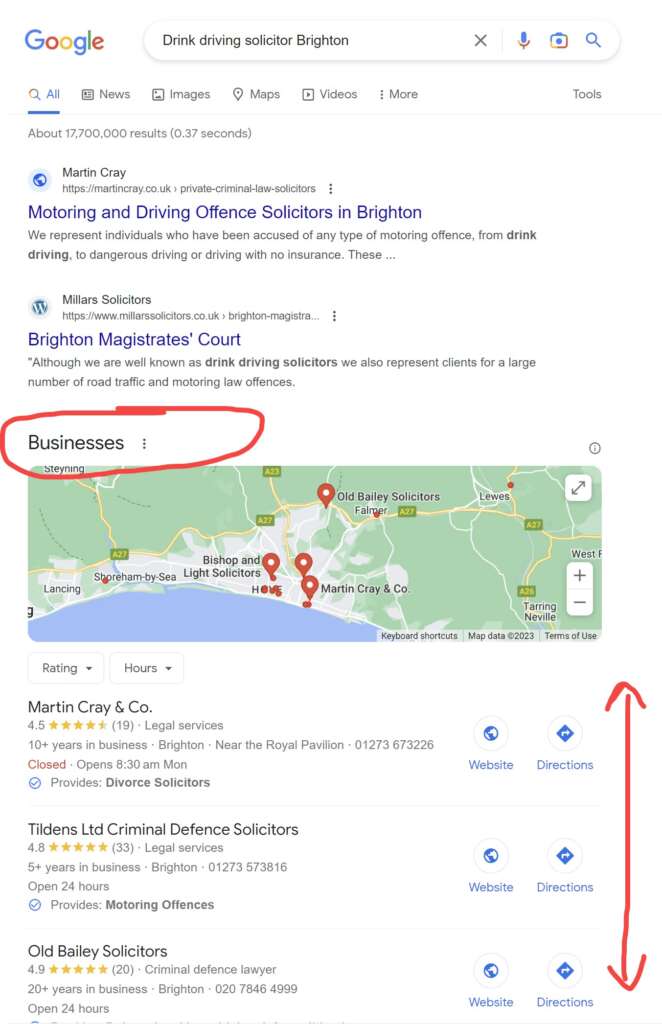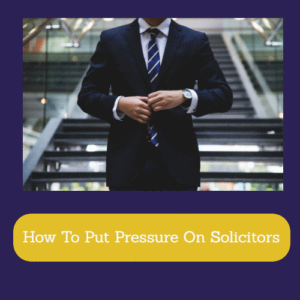 Solicitors, negligence, and making a claim
Solicitors, negligence, and making a claim
We all hope that we can rely on the solicitor we chose to guide us through legal situations. But what if mistakes are made? When it comes to solicitors, negligence is – thankfully – relatively rare. It’s not impossible though.
To be connected to a specialist solicitor near to where you live, please either call us now on 0845 1391399 or complete a Free Online Enquiry.
If you think you have suffered losses or damage because of actions your solicitor took (or failed to take), here is everything you need to know to start thinking about making a claim:
Solicitors, Negligence, And Duty Of Care
Solicitors are professionals. Under the law, this word has certain connotations. Chiefly, it means they have what is known as a “duty of care” to deliver their services to a certain standard.
If a solicitor fails to meet those standards (this is sometimes called “breaching their duty of care”) and their client suffers as a result, they may be guilty of what is called “professional negligence”.
This is a specific part of wider negligence law. There are many subsets of this kind of law. Medical negligence, for example.
In order for something your solicitor did or did not do to count as professional negligence, you need to be able to show that:
- There was a duty of care – some types of professionals (financial advisors, personal trainers, chartered surveyors, and more) have an established duty of care. Solicitors do, so this is a given.
- The duty of care must be breached – you must be able to show how your solicitor’s actions (or their lack of action when action was reasonably required) breached the duty of care you had a right to expect.
- The breach caused losses or damage – crucially, you must be able to prove that the breach of duty of care caused you physical damage or (much more likely for solicitors) a financial loss.
Can I Sue My Solicitor For Negligence?
Yes. It is possible to sue solicitors you may have used for professional negligence. This is because solicitors are in one of those professions that is recognised as having a duty of care to its clients.
The deciding factor is whether your particular situation meets the other two criteria on the list above, namely:
- Did your solicitor’s actions, advice, or lack of action or advice fall below the standards you might have reasonably expected?
- If so, did that “breach” of their duty cause you to suffer losses or damage?
Examples Of Professional Negligence By Solicitors
These are some potential examples of professional negligence by solicitors:
- Bad legal advice – if your solicitor advised you to do something (or not to do something) and it caused you a financial loss.
- Failure to offer legal advice – a failure to act can be perceived as negligence just as easily as an act. For instance, if a solicitor failed to offer advice when you might have reasonably expected them to, it could be negligence if you suffered a loss as a result.
- Not issuing a claim in time – if your solicitor did not issue a claim in time and you missed out on compensation as a result.
- Not drafting a will correctly – if your solicitor drafted a will poorly and you missed out on inheritance intended for you as a result.
- “Under settling” compensation claims – if your solicitor successfully helped you claim compensation for personal injury but then settled for less than you were due.
This list is by no means complete. If you think your solicitor has acted in a way that has caused you to suffer a loss, why not reach out to Solicitors Near Me to get matched with friendly legal advice for FREE and with no obligation to use a service?
It only takes a moment to complete a Free Online Enquiry for professional negligence?
Yes. A successful professional negligence claim – where you proved that your solicitor breached their duty of care and caused you a loss – can result in them paying you compensation.
The level of compensation you can receive isn’t set. Most likely, you can expect it to be around the amount of damage or losses you suffered as a result of their negligence.
Are There Any Other Options Besides A Professional Negligence Claim?
Your solicitor may also be in breach of contract if there is a written contract between you. This may be something written in the contract or something the law applies to all contracts of that type.
This sort of claim can be in addition to or instead of professional negligence and is often worth exploring with any legal expert you consult.
How Do I Start A Negligence Claim Against My Solicitor?
First things first. You’ll need to get specialist legal advice from a solicitor skilled in negligence law.
Why not let Solicitors Near Me find an expert near you? We do it for FREE and with zero commitment to use them.
To be connected to a specialist solicitor near to where you live, please either call us now on 0845 1391399 or complete a Free Online Enquiry.


 Having Difficulties With Your Solicitor: How To Put Pressure On Solicitors?
Having Difficulties With Your Solicitor: How To Put Pressure On Solicitors? How much do solicitors earn in the UK?
How much do solicitors earn in the UK? If you are hoping to find out how to notify DVLA of care sale, then you are in the right place. The Driver and Vehicle Licensing Agency (DVLA) administers the records of all the drivers and vehicles in the UK. They need to know who owns which vehicle. This makes knowing how to tell the DVLA you’ve sold your car very important. In this article we see how to notify the
If you are hoping to find out how to notify DVLA of care sale, then you are in the right place. The Driver and Vehicle Licensing Agency (DVLA) administers the records of all the drivers and vehicles in the UK. They need to know who owns which vehicle. This makes knowing how to tell the DVLA you’ve sold your car very important. In this article we see how to notify the